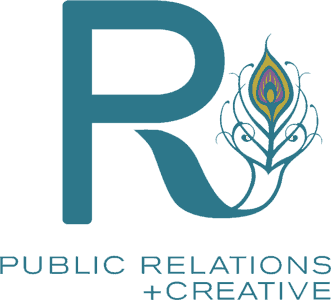Public relations (PR) is a valuable tool in managing and enhancing an organization’s reputation. However, there are instances where PR efforts to shape public perception or build lasting relationships may not yield the expected results. Here are seven key reasons why public relations sometimes falls short and ways to address these challenges for a more effective communications strategy.
1. Lack of Clear Public relations (PR) Objectives

At the heart of any successful public relations campaign lies a set of well-defined and achievable objectives. When PR professionals are not armed with clear goals, the entire strategy can meander aimlessly, making it difficult to measure success or demonstrate the impact of their efforts. Organizations must invest time articulating specific, measurable, and realistic objectives to overcome this challenge.
Emily Reynolds Bergh, founder of R Public Relations + Creative, is a consummate marketing and public relations pro with over 15 years of experience delivering personalized, top-caliber PR services to diverse clients, particularly in the hospitality, business, and technology spaces. Bergh explains, “Whether it’s enhancing brand awareness, managing a crisis, or fostering community engagement, having a crystal-clear roadmap ensures that every PR initiative contributes meaningfully to the organization’s overarching goals.”
2. Ineffective Communication Strategy

Public relations is fundamentally a communication discipline, and the success of any communication strategy hinges on its effectiveness. If the messaging is unclear, inconsistent, or fails to resonate with the target audience, the PR efforts will likely fall flat.
Developing an effective communication strategy involves understanding the intricacies of the audience—their needs, preferences, and communication channels. Tailoring messages to align with the audience’s interests and concerns fosters a stronger connection. PR professionals should also remain vigilant about adjusting their strategies as they receive feedback and insights from the audience to ensure ongoing resonance.
3. Ignoring Stakeholder Perspectives
Effective public relations is not a one-way street; it involves a dialogue with various stakeholders. Neglecting or dismissing the perspectives and concerns of these stakeholders can undermine the credibility and support crucial for PR success. It is essential to identify key stakeholders, understand their expectations, and actively involve them in the communication process.
Whether it’s customers, employees, investors, or the community, their viewpoints should be acknowledged and integrated into PR strategies. By prioritizing stakeholder perspectives, organizations can build trust and create a more authentic and mutually beneficial relationship with their audience.
4. Failure to Adapt to Changing Circumstances
The business and media landscape is dynamic, with constant shifts in trends, crises, and public sentiment. Rigid public relations strategies that fail to adapt to these changes may miss the mark. It’s imperative for PR professionals to stay attuned to emerging trends, monitor public sentiment, and be ready to adjust their strategies accordingly.
A proactive approach involves scenario planning and crisis preparedness, enabling organizations to swiftly navigate unforeseen challenges. By embracing adaptability, PR efforts can remain relevant and effective in an ever-evolving external environment.
5. Insufficient PR Resources
Successful public relations initiatives demand resources: skilled personnel, time, and budget. When organizations fail to allocate adequate resources to their PR activities, the consequences can be dire. A lack of investment may diminish the capacity to implement a comprehensive and impactful strategy. Recognizing that PR is an investment in building and safeguarding an organization’s reputation is essential.
Adequate resources empower PR professionals to engage with the audience effectively, respond to challenges, and capitalize on opportunities. Whether training personnel, dedicating time for strategic planning, or allocating a budget for media outreach, investing in PR resources is fundamental to success.
6. Lack of Consistent Brand Messaging

Consistency is key in public relations, and a lack of coherent and consistent brand messaging can hinder success. When messages are disparate or contradictory, confusion ensues among the audience, eroding trust and diluting the intended impact. A robust brand messaging strategy involves aligning all communication efforts with a central narrative that reflects the organization’s values, mission, and unique selling propositions.
It’s important to ensure that messages conveyed through various channels—be it social media, press releases, or marketing materials—are harmonized. Organizations can reinforce their brand identity by maintaining a unified voice and making a lasting impression on their audience.
7. Inadequate Measurement and Evaluation: The Blind Spot in Public relations (PR) Strategies
Another significant challenge in public relations is the lack of robust measurement and evaluation mechanisms. Without a structured approach to assess the impact of PR efforts, organizations may find it challenging to gauge their success, learn from their experiences, and make informed adjustments. Implementing key performance indicators (KPIs) and regularly evaluating the outcomes of PR campaigns are critical steps.
Metrics such as media coverage, audience engagement, and sentiment analysis can provide valuable insights into the effectiveness of PR strategies. By leveraging data-driven insights, organizations can refine their approaches, optimize their messaging, and continually enhance the impact of their public relations initiatives.
While public relations can be a powerful force for shaping public perception, it is not immune to challenges. Clear objectives, effective communication strategies, stakeholder engagement, adaptability, and adequate resources form the pillars of successful PR initiatives. By addressing these challenges head-on, organizations can unlock the full potential of public relations and foster positive relationships with their audience. In the always-changing communication landscape, the ability to navigate challenges sets apart impactful PR campaigns from the rest.
At RPR Firm, we have a team of PR professionals with the skills and experience to help you create successful public relations strategies and avoid pitfalls. Schedule a free consultation with us today.
